Stem Cell
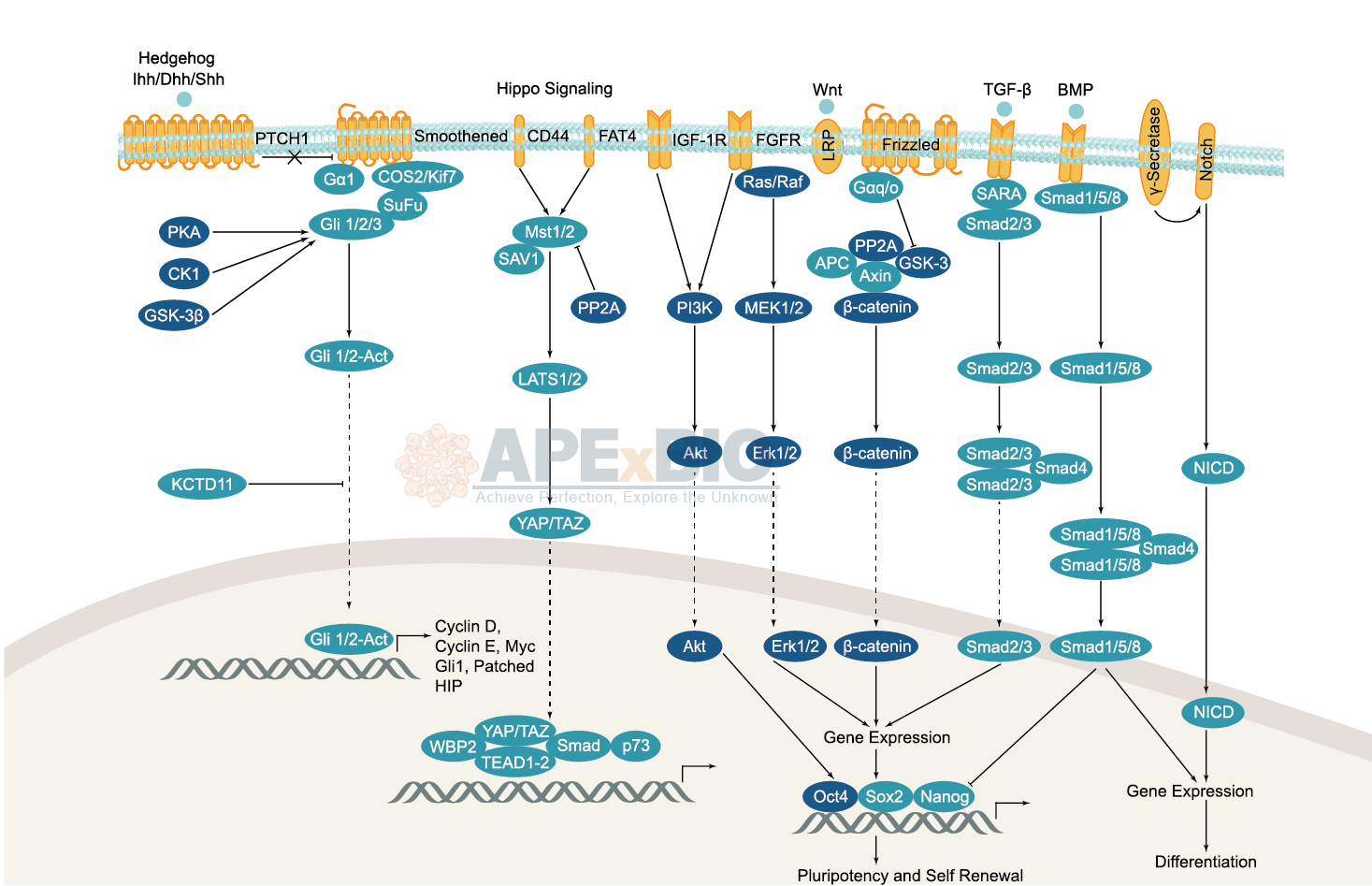
In ESC, BMP/TGF-β signaling pathway plays a key role in maintaining pluripotency and self-renewal. It signals through Smad proteins, and the FGF signaling pathway, which activates the MAPK and Akt pathways. The Wnt signaling pathway also promotes pluripotency. OCT-4, SOX2, and NANOG are three main transcription factors that are expressed and activated by these pathways. Induced pluripotent stem cells (iPSC) are pluripotent cells that can be generated from differentiated cells with forced expression of specific reprogramming factors. Both ESC and iPSC can be induced to develop into distinct cell types that associated with three primary germ layers: ectoderm, mesoderm and endoderm. Signaling pathways that control the development of these cell lineages, including BMP/TGF-β, Notch, Wnt/β-catenin, Hedgehog and Hippo pathways, which regulate cell division, growth and differentiation. Defects in stem cell signaling are related to developmental disorders and cancer.
-
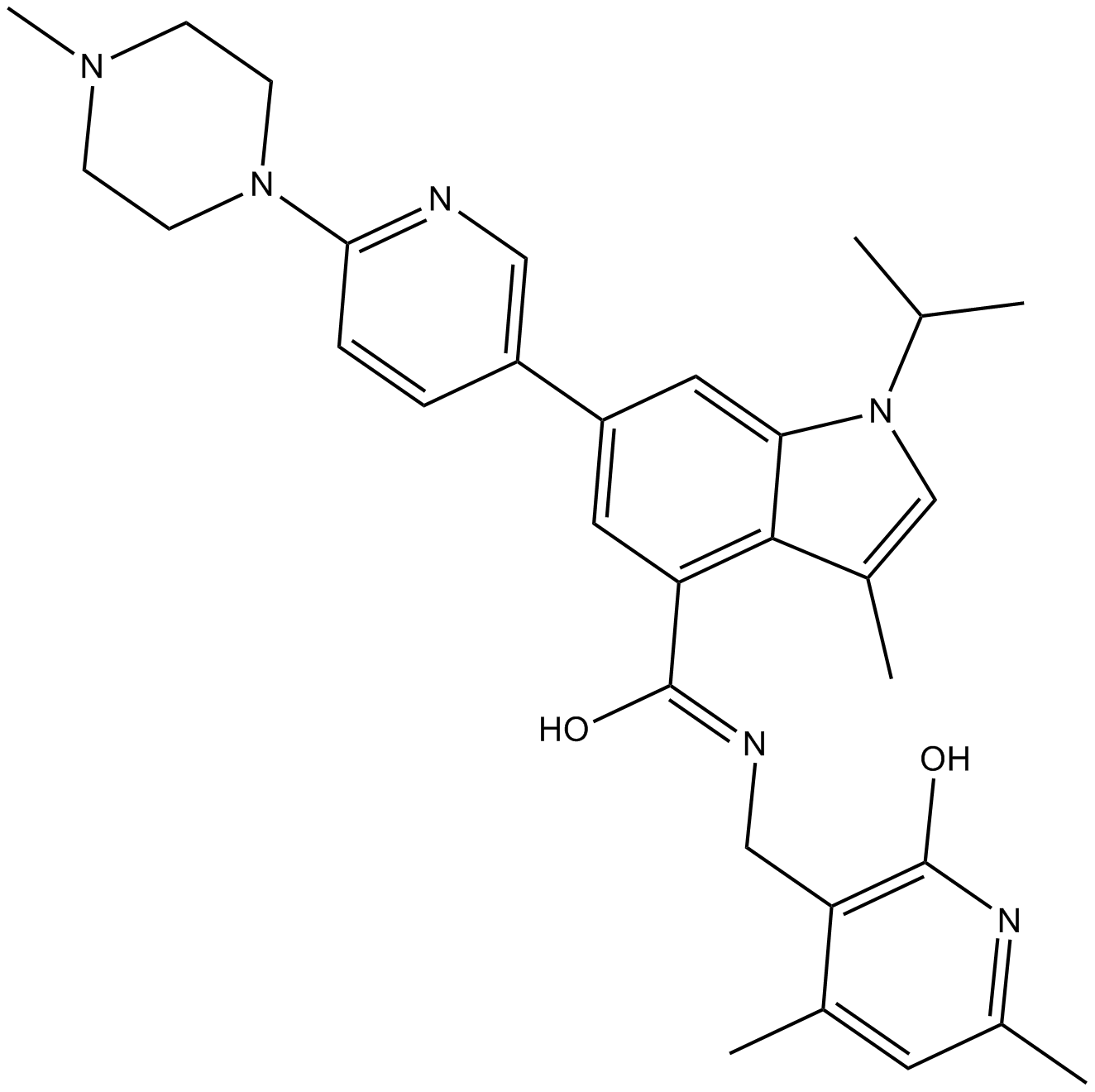 B5833 GSK5032 CitationSummary: EZH2 inhibitor
B5833 GSK5032 CitationSummary: EZH2 inhibitor -
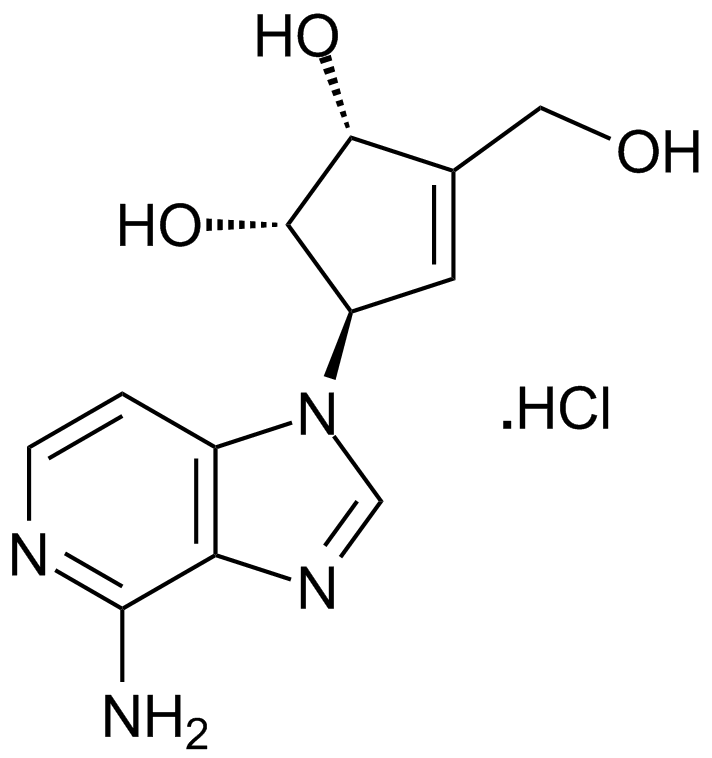 A8182 3-Deazaneplanocin A (DZNep) hydrochloride1 CitationTarget: EZH2Summary: SAHH and EZH2 inhibitor
A8182 3-Deazaneplanocin A (DZNep) hydrochloride1 CitationTarget: EZH2Summary: SAHH and EZH2 inhibitor -
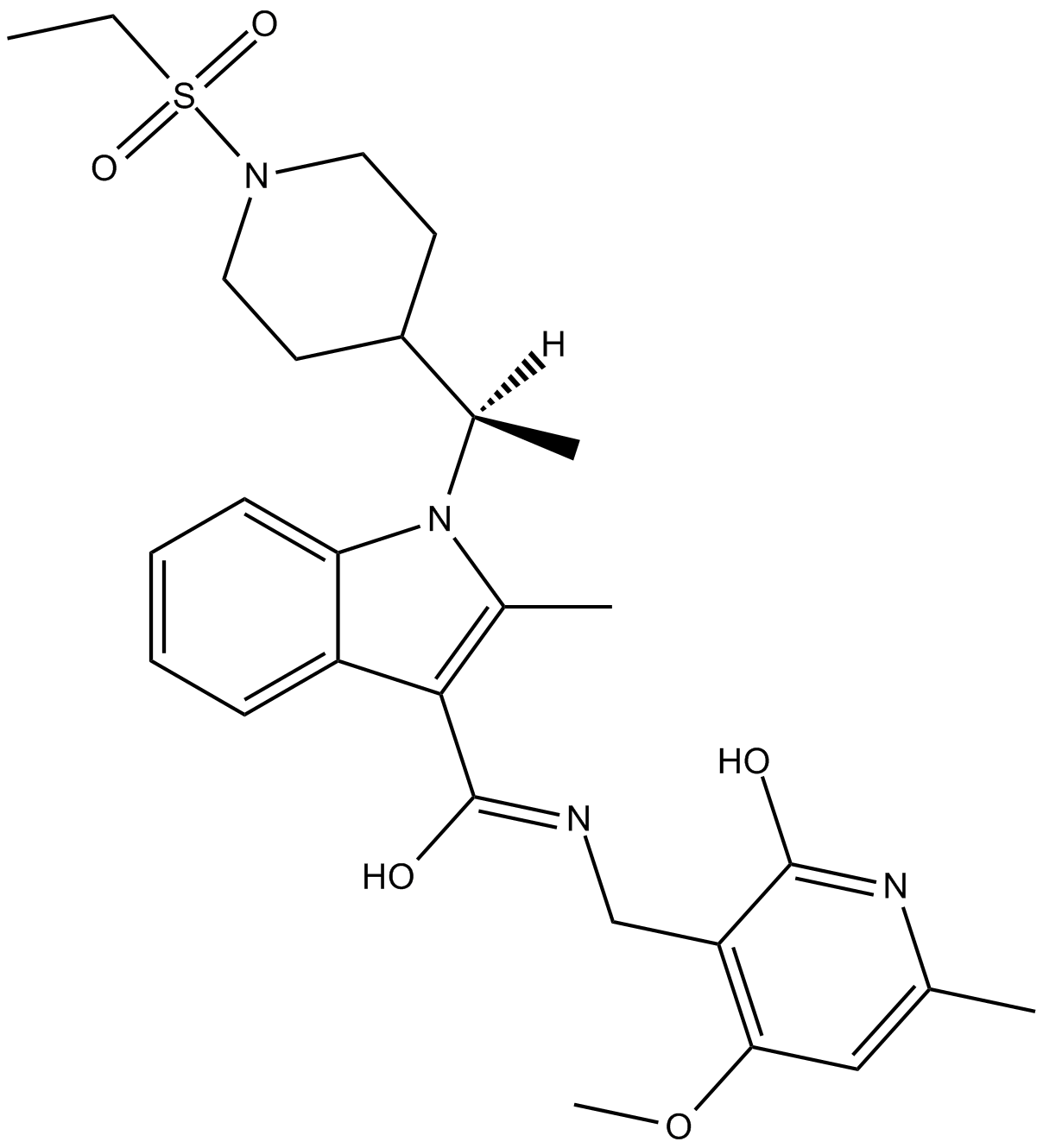 B4678 CPI-1691 CitationTarget: EZH2|EZH1Summary: EZH2 inhibitor
B4678 CPI-1691 CitationTarget: EZH2|EZH1Summary: EZH2 inhibitor -
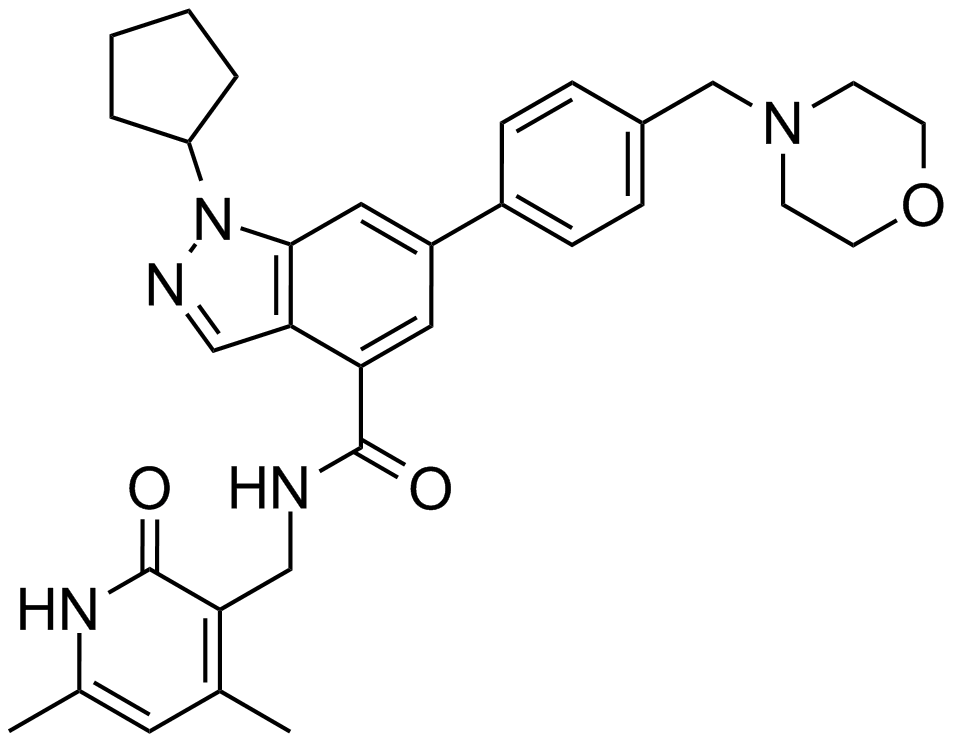 A4171 EPZ0056872 CitationTarget: EZH2Summary: EZH2 inhibitor,potent and selective
A4171 EPZ0056872 CitationTarget: EZH2Summary: EZH2 inhibitor,potent and selective -
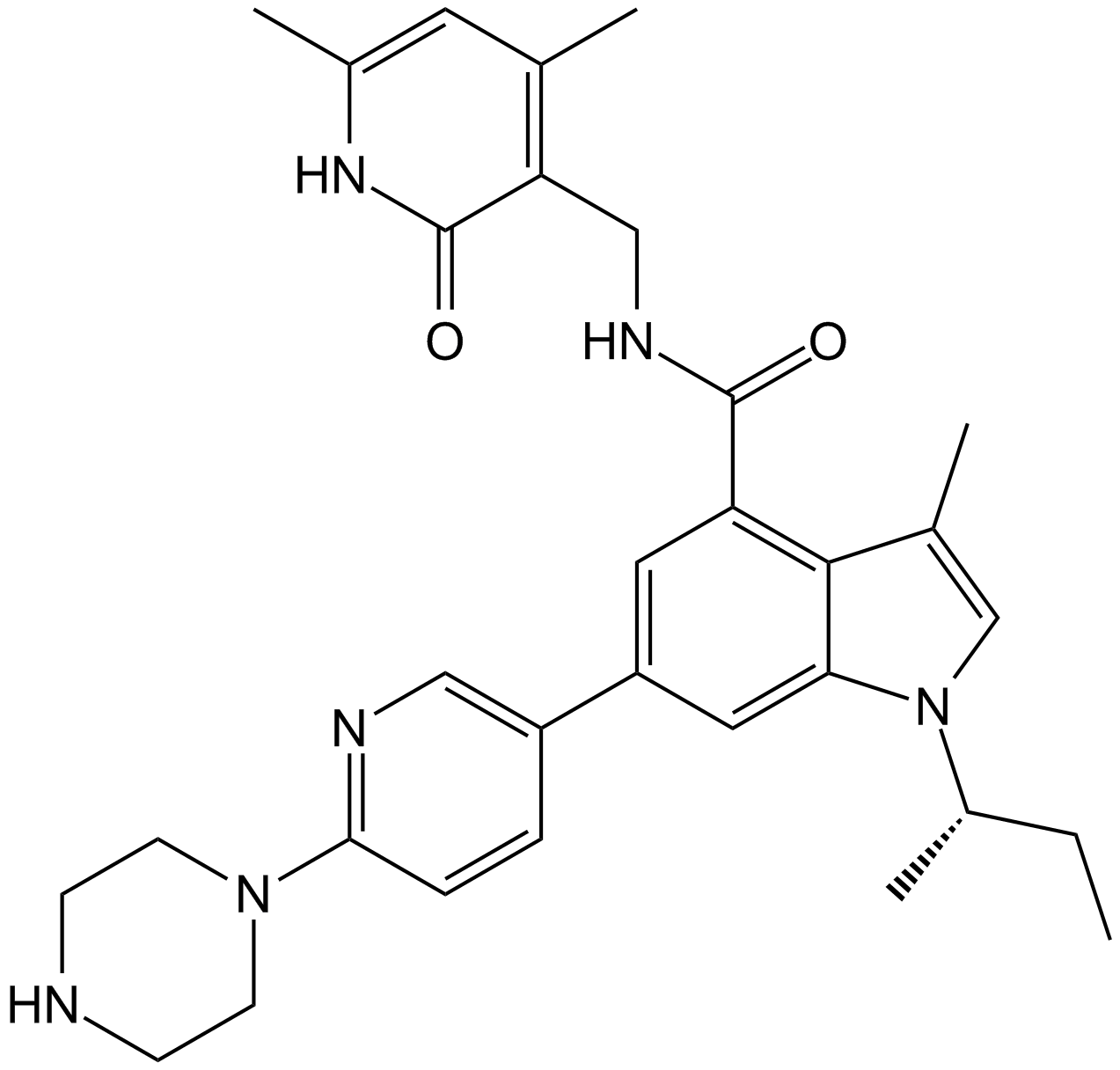 A3446 GSK1265 CitationTarget: EZH2Summary: EZH2 inhibitor
A3446 GSK1265 CitationTarget: EZH2Summary: EZH2 inhibitor -
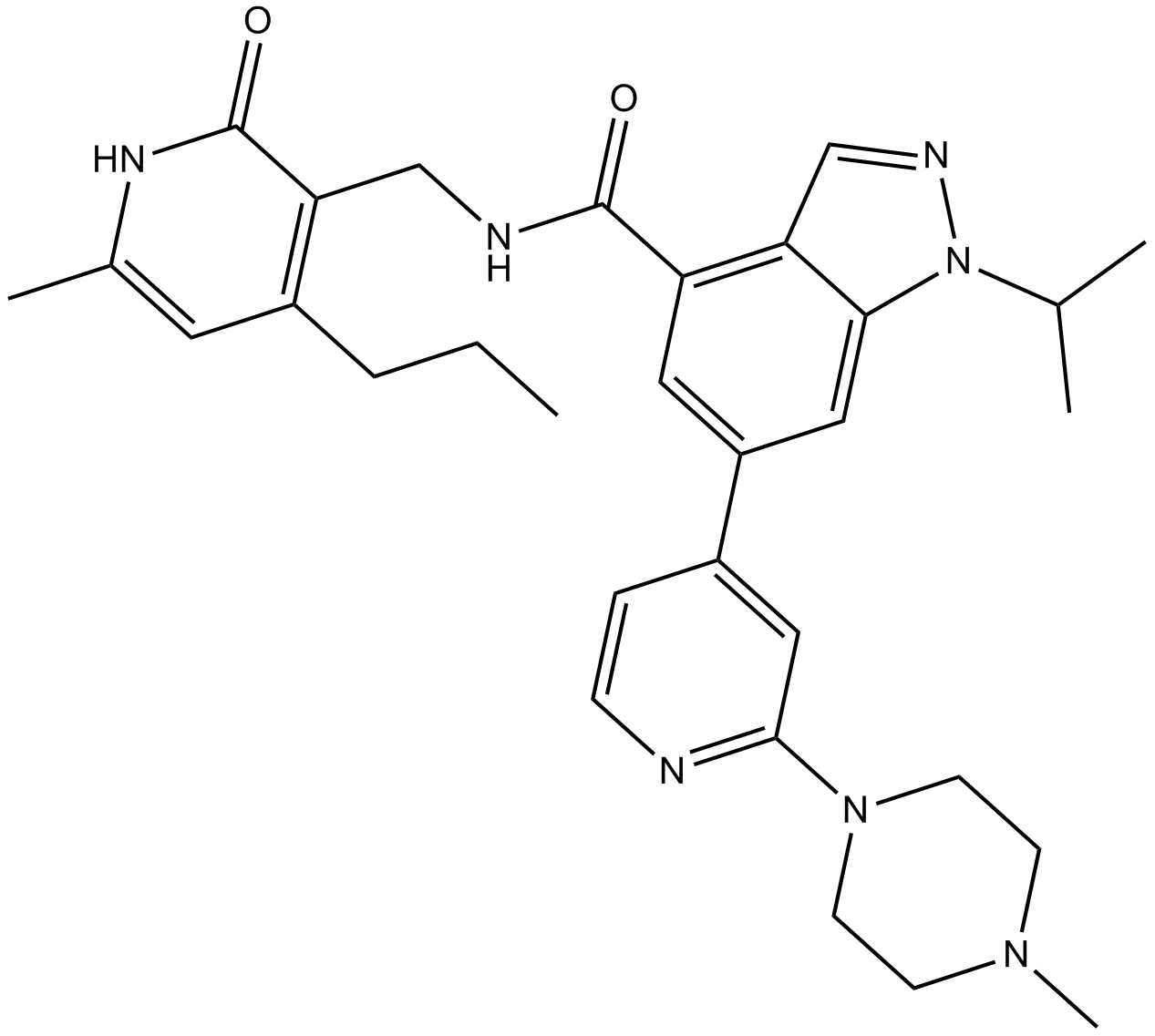 A3449 GSK3431 CitationTarget: EZH2Summary: EZH2 inhibitor,potent,selective and cell permeable
A3449 GSK3431 CitationTarget: EZH2Summary: EZH2 inhibitor,potent,selective and cell permeable

